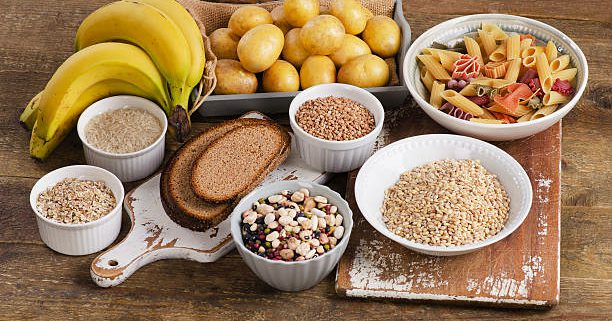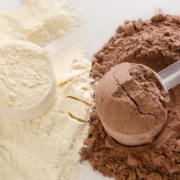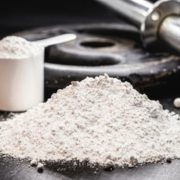Carbohydrates
Carbs have such a bad reputation but are they as bad as a lot of people seem to think? Lets have a look,
First of all what exactly are carbohydrates?
Carbohydrates are one of the three macronutrients (nutrients that form a large part of our diet) found in food. The others are fat and protein.
Hardly any foods contain only 1 nutrient, and most are a combination of carbohydrates, fats and proteins in varying amounts.
There are two major types of carbohydrates (or carbs) in foods: simple and complex.
Simple carbohydrates: These are also called simple sugars. They’re found in refined sugars, like the white sugar you see in a sugar bowl. If you have a lollipop, you’re eating simple carbs. But you’ll also find simple sugars in more nutritious foods, such as fruit and milk. It’s healthier to get your simple sugars from foods like these. Why? Because sugar isn’t added to them and they also contain vitamins, fibre, and important nutrients like calcium. A lollipop has lots of added sugar and doesn’t contain important nutrients.
Complex carbohydrates: These are also called starches. Starches include grain products, such as bread, crackers, pasta, and rice. As with simple sugars, some complex carbohydrate foods are better choices than others. Refined grains, such as white flour and white rice, have been processed, which removes nutrients and fibre. But unrefined grains still contain these vitamins and minerals. They’re also rich in fibre, which helps your digestive system work well. Fibre helps you feel full, so you’re less likely to overeat. A bowl of oatmeal fills you up better than sugary candy with the same amount of calories.
What’s the role of carbohydrates in exercise?
Carbohydrates, fat and protein all provide energy, but your muscles rely on carbohydrates as their main source of fuel when you exercise.
Muscles have limited carbohydrate stores (glycogen) and need to be topped up regularly.
A diet that is low in carbohydrates can lead to a lack of energy during exercise, early fatigue and delayed recovery
Do carbohydrates make you fat?
Any food can cause weight gain if you eat too much. Whether your diet is high in fat or high in carbohydrates, if you frequently consume more energy than your body uses, you’re likely to gain weight.
Grams for gram, carbohydrates contain fewer calories than fats. Wholegrain varieties of starchy foods are good sources of fibre. Foods high in fibre add bulk to your meal and help you to feel full.
Foods high in sugar are often high in calories, and eating these foods too often can contribute to you becoming overweight.
Simple carbs cause bursts of energy much more quickly than complex carbs because of the quicker rate at which they are digested and absorbed. Simple carbs can lead to spikes in blood sugar levels and sugar highs, while complex carbs provide more sustained energy.
Key takeaways about Carbs
- Limit foods that are high in processed, refined simple sugars. They have very little nutrition.
- Get your simple sugars from naturally occurring sources like some fruits and vegetables
- Get more complex carbohydrates and healthy nutrients by eating more fruits and vegetables. Complex carbohydrates raise blood glucose levels for longer and produce a more lasting elevation in energy. The primary function of carbohydrates is to provide the body with energy, and complex carbohydrates do this more effectively.
- Focus on whole-grain rice, breads and cereals, and don’t forget the legumes — beans, lentils and dried peas.
- Carbs on their own to not make you gain weight – too many calories make you gain weight
- Carbs calorie values do not change after a certain time – carbs consumed after 6pm have the same calorie value as carbs consumed before 6pm
Examples of simple carbs
- Some Fruits
- Candy/lollies/sweets
- Sugary drinks
- Syrups
- Table sugar
- Fruit juice concentrate
- Products with added sugar, such as baked goods or some cereals
Examples of complex carbs
- Whole grains such as brown rice, wild rice, oatmeal, whole-grain (rather than pearled) barley, bulgur (which is made from cracked wheat), and farro
- Grain-like foods such as quinoa (a seed) and buckwheat (a grass)
- Starchy vegetables including potatoes, sweet potatoes, and corn
- Non-starchy vegetables—everything from asparagus to zucchini
- Beans and legumes like lentils, kidney beans, and chickpeas







